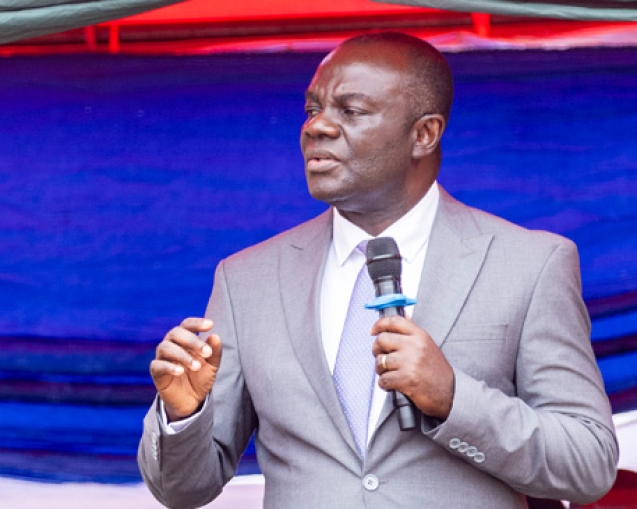Soccer matches between Real Madrid and Barcelona are among the most intense and heated rivalries in club football. Known as “El Clásico,” the buildup of tension from the pre-match activities through the game itself, the team benches, and the post-match debates is remarkable. Although these two clubs are based in Spain, their rivalry’s influence extends beyond cultural or geographic boundaries. I understand that the rivalry also has political aspects, as Real Madrid is associated with Spanish nationalism, while Barcelona supports Catalan nationalism. The most recent match, held on Sunday, October 26, 2025, drew an attendance of 78,107 and an estimated global viewership of 650 million. Real Madrid won 2-1, but not without the usual controversies.
One such moment was when Vinicius Jnr, doing what he knows best at his favorite Santiago Bernabéu Stadium, had to be substituted by his coach, Xabi Alonso, in the 72nd minute. Clearly angry with the decision, Vini Jnr couldn’t control his emotions and was seen attacking anyone who came across his path as he left the field, including the very coach who had sent him on for that crucial match. I had the chance to watch the game, and honestly, I didn’t think that substitution was necessary at the time. In fact, Vini Jnr was my player of the match from the start, as he appeared highly motivated to lead his team to victory. He went after every ball and gave his all on the field. No wonder all the goals scored, including the ones disallowed for offside, came from his efforts. Vini Jnr was such a headache for the Catalonians. At one point, Pedri literally had to grab his shirt with both hands to slow him down because his work rate was just too much for him to handle.
Real Madrid won the game, but one of the main post-match topics centered around Vinicius Jr.’s emotional outburst at his technical staff, in full view of hundreds of millions of viewers worldwide. I have heard many soccer analysts blame Xabi Alonso for substituting Vinicius Jr. at that “ungodly” hour when they were only 18 minutes away from regulation time. Others have also come to the defense of the coach, arguing that, as an experienced former player, he knew exactly what he was doing to secure his team’s lead until the final whistle. It was, therefore, a difficult substitution the coach had to make and one he has to live with the consequences of forever. This debate is unlikely to end today or tomorrow, but I have gleaned a couple of lessons for our Christian journey, and I want to share them for our prayerful reflection. These lessons are categorized under what those who are substituted in every area of life must observe, and what coaches with the power to substitute must also watch.
WHEN YOU ARE CALLED TO COME AND REST AT THE BENCH
- As a player, gladly accept and welcome your substitution decision because a lot goes into making such a move from the bench. Players or professionals who get substituted should not view it through a narrow lens or see it as a personal vendetta by the technical staff. Before a change is made, there is usually much discussion at the team’s bench, strategizing on how to overcome the opponent’s tactics. Therefore, it cannot be that the coach who selected and defended your inclusion simply sits by and allows personal scores to be settled in critical matches like El Clásico. Similarly, if you are reassigned, transferred, or substituted with anyone at work, church, or in an organization, please accept the decision in good faith, especially if your trust is in the Lord. Psalm 37:23 reminds all believers that their steps are ordered by the Lord and cannot therefore be used by humans for experiments. Even when you think you have the energy to deliver more results, please accept it, rest those legs, and prepare for future assignments. God never makes a mistake.
- If over 650 million people watched the match worldwide and over 78,000 were physically present to witness the event, we must all be careful not to disappoint our supporters with emotional outbursts, regardless of the provocation. This is especially true when the outburst is aimed at the very manager who selected you for the starting lineup; some players even go so far as to kick or throw the water bottles used to greet them at the technical bench. Meanwhile, there are fans or secret admirers around the world to whom you may never have the chance to apologize for your unacceptable actions, even if you get the opportunity to make amends with teammates and managers. Such behavior at this level surpasses the usual insubordination between a worker and their supervisor. Many people support Vinicius Jnr’s nomination for the Ballon d’Or or the world’s best player of the year, even if he doesn’t realize it. However, actions like these only reinforce the doubts of those who oppose his nomination for soccer’s highest award. Meanwhile, Vinicius Jnr’s work rate on any good day is simply impressive because he is nearly unstoppable. Similarly, the Bible speaks of a cloud of witnesses, which includes not only humans but also angelic beings: “Therefore, we also, since we are surrounded by so great a cloud of witnesses, let us lay aside every weight, and the sin which so easily ensnares us, and let us run with endurance the race that is set before us” (Hebrews 12:1).
You might be surprised by the influence you hold over many people you may never realize. Indeed, some are merely hanging on in life, keeping hope alive because of the inspiration and grace you carry. Even if Vinicius had a personal grievance with Alonso, he chose the wrong moment and place, especially when his team was leading and everyone was on edge awaiting the referee’s final whistle. The Church of Christ has also won and is in a comfortable lead, waiting for the trumpet to sound. Let us all be measured, guided, and cautious in our actions and gestures that do not bring glory to God.
- Your change or substitution could even be in your best interest as a professional footballer. How many times have we not seen soccer players collapse and pass out on the field? Don’t you think those players would have begged to be substituted if they knew what was coming before the unthinkable happened? Moreover, injuries have taken a toll on many talented footballers. Staying on the pitch could lead to life- and career-threatening injuries during crucial matches like El Clásico. I’ve heard of cases where malicious players or defenders intentionally aim to end a career, knowing exactly where to hit to cause the most damage.
- Your substitution might also protect you from blame if the opposing team makes a comeback after you leave. Barcelona appeared quite confident in attack when Vinicius left the field, and they could have turned the game around if there had been more time. I’ve also seen winning teams lose in the end because of poorly planned substitutions. Spectators who are not professionals often jump in with opinions when things start to go wrong. When David was exiled in the Philistine town of Ziklag, the Philistine lord chose him to fight for them against the Israelites led by King Saul. As a professional soldier, David accepted the challenge and went to battle, but just before it began, the Philistine technical bench opposed his inclusion and signaled his substitution. Although the Philistine king tried to defend David’s role because of his loyalty, the others on the bench prevailed. In the end, David had to leave the field early and return to Ziklag: “So, David and his men got up early the next morning to go back to the land of the Philistines, and the Philistines went up to Jezreel” (1 Samuel 29:11).
Little did David know that God orchestrated those conflicts at the Philistine bench to clear him of any future conflicts with Israel, as David was actually the king-in-waiting. The battle turned sour for Israel, Saul, and his sons, and ultimately, they all perished. Do you think David would ever have forgiven himself if he had insisted on fighting against his own Israel? Look at the lamentations he wrote for the household of Saul and his close friend Jonathan when he heard of their deaths and Israel’s shameful defeat in 2 Samuel 1:17-26. Indeed, Israel might have blamed David’s skill for their loss and even spread lies claiming David killed Saul and Jonathan, his close friend. Do you see what God sees ahead and does for His loved ones?
- The manager or coach might want to keep you safe or in good shape for other important matches, so acting against the rules of politeness could harm your career. When Vinicius was substituted, instead of quietly supporting his teammates from the bench, I saw him leave the field as if he had been shown a red card. Interestingly, after the final whistle, I saw him run to join his teammates in celebration. How and why would you choose such a confrontational approach with everyone, only to turn around and celebrate with them? I wouldn’t be surprised if some teammates turned their backs on him when he returned to the field to join the celebration. Substitution should never be viewed as a red card but rather as a gracious recognition of your efforts, giving others a chance to carry on from where you left off.
- Although standard FIFA rules state that a substituted player cannot return to the game, some competitions, such as those for youth or veterans, allow return substitutions if previously agreed upon. In such cases, a player who has been substituted can re-enter the field during regulation time. So, if your substitution causes confusion and significant tension, which manager would consider calling you back if needed? Some organizations still hire retirees or individuals who are effectively sidelined, making the most of their second opportunities with better and more favorable working conditions. This is often due to their professional demeanor while working full-time and their positive attitudes toward leadership during transfers, reassignments, and exits from the organization.
- There is speculation about some tension or uneasiness between Vinicius Jr. and Xabi Alonso, just after he took over from Carlo Ancelotti. Word is that Alonso, from the earliest stages of his tenure, has been irritated by some of Vinicius’s behavior and has not been impressed with him. This might be contributing to some of Vinicius’s outbursts, but he must understand that the stakes at Real Madrid and the significance of El Clásico are far greater than Alonso’s, who would likely leave the club as a manager someday. As believers, let us not allow perceived hostility to tarnish our ability to be a blessing to the vast cloud of witnesses. Changes in political or leadership structures and their transitions pose challenges for most organizations’ workers.
Despite all the great things Daniel did at the Babylonian palace for King Nebuchadnezzar, when Belshazzar, his son, took over, the entire system tried to sideline Daniel by minimizing his importance at the palace. The Lord God, who knows how to make His children relevant wherever they serve, did something that restored Daniel’s significance. As they drank wine and praised the gods of the land, suddenly, a human hand appeared and wrote on the plaster of the wall. At this, the king turned pale, frightened, and his knees buckled (Daniel 5:4-5). The king then summoned all his enchanters, astrologers, and diviners to interpret the writing on the wall, but Daniel was left out. Meanwhile, during his father Nebuchadnezzar’s reign, a similar event occurred, leading to the gathering of all the enchanters and diviners. Through God’s grace, Daniel was given the title “Chief of the Magicians” by Nebuchadnezzar himself (Daniel 4:9). How could there be a matter in the palace needing someone like Daniel, but none of the enchanters, astrologers, or magicians ever mentioned Daniel’s name to the new king? Who could trust that the king had not heard of Daniel’s exploits? Yet these are some of the nuances of power transitions. Isn’t it surprising that it was the king’s wife who finally intervened by mentioning Daniel’s name when her husband continued to grow pale? (Daniel 5:11-17). When Daniel was called, he didn’t even accept the gifts offered by the king but served him and his subjects with the grace the Lord had given him. So, no matter how Alonso tries to sideline Vinicius Jr., there will be times when he’ll have no choice but to rely on him to get the job done. Even if Alonso pretends he doesn’t need Vinicius, the fans and women at the Bernabéu Stadium will be chanting his name, just like the Queen of Babylon did.
WHEN YOU HAVE TO SUBSTITUTE A PLAYER
Most of the lessons learned were for the players being substituted and the signals they need to send. However, I have a few for managers, coaches, or others with the authority to make staff or supervisory changes.
- As a manager or coach, aim to love all your players, even if you naturally connect more easily with some. When this connection occurs, a player on the field might even raise his hand to signal a substitution if he feels things aren’t going as expected. If a player gets the slightest impression that they are unloved, they will interpret every move the coach makes at the technical bench negatively. Vinicius was not arguing about the timing of the substitution, but he was quite surprised it was going to be him considering the spirit and work rate he showed in that particular match from the first half. He probably would have pointed to the coach—the one who needed to be replaced—yet, assuming the coach had a soft spot for that player, it would be hard for him to make that change. Fairness should not only be practiced but also visibly woven into the relationship, both on and off the field.
- Managers must learn never to settle personal scores or grievances on the platform of the most dreaded El Clásico, because the stakes outlast even their lifetimes. Besides the world of sports betting, some go as far as taking their own lives if their team loses such matches, not to mention the relationships that suffer after incidents like these. The showiness of egos or power should not be allowed to take center stage here as a coach or manager, since everyone knows you have the power to make any substitution, including all eleven players on the field. Don’t waste too much time trying to prove that point. The collective interest of the team and fans should be the main concern when making substitutions in such crucial games, especially during the last minutes. Any equalizer could easily be blamed on the substitution, which might have nothing to do with the final score at the full-time whistle. No matter how Apostle Peter denied and disappointed Christ right after His arrest, he was the one Jesus entrusted with the church. However, people like John the Beloved were also present. Despite all his weaknesses, there was something the Lord saw in Peter that made him the most suitable to lead the early church after His departure.
- Coaches or managers must be alert and discerning enough to recognize those elements that always try to take advantage during power transitions. Isn’t it shocking to learn that not even one of the enchanters or magicians at the Babylonian palace mentioned the good works of Daniel, their spiritual leader, to King Belshazzar after he took over from his father? It took God to shake the palace and frighten the new king with a supernatural handwriting on the wall before the queen remembered Daniel. This highlights one of the vulnerabilities of managers or coaches who assume new roles. It is common for coaches to adapt to new players who match their style or philosophy of play. However, care must be taken to see through the pushing and shoving that accompany power transitions so managers remain focused on the overall good of the team or organization.
- Coaches and managers must recognize that, as stewards, they will be held responsible for every decision they are authorized to make, including choosing the starting lineup and managing substitutions. If human owners can fire their managers for poor results, then the Lord Jesus will not hesitate to hold His children fully accountable in every area they occupy. Therefore, use the authority granted to you to support your organization’s corporate objectives.
As leaders, managers, or coaches, let us avoid bias and show genuine love to the “Vinicius Jnrs” in our institutions so that substituting them from the field becomes an obvious and acceptable action in the eyes of the spectators. I urge the “Vinicius Jnrs” of today to learn to maintain their composure whenever they are called to rest on the bench. Your God-given talent is intended to be a blessing wherever you are, not a nuisance to everyone. After all, Christ has already won the match. What the church is waiting for is the referee’s final whistle, which could sound at any moment now. Stay blessed.
Written by Apostle James Orhin Agyin


















